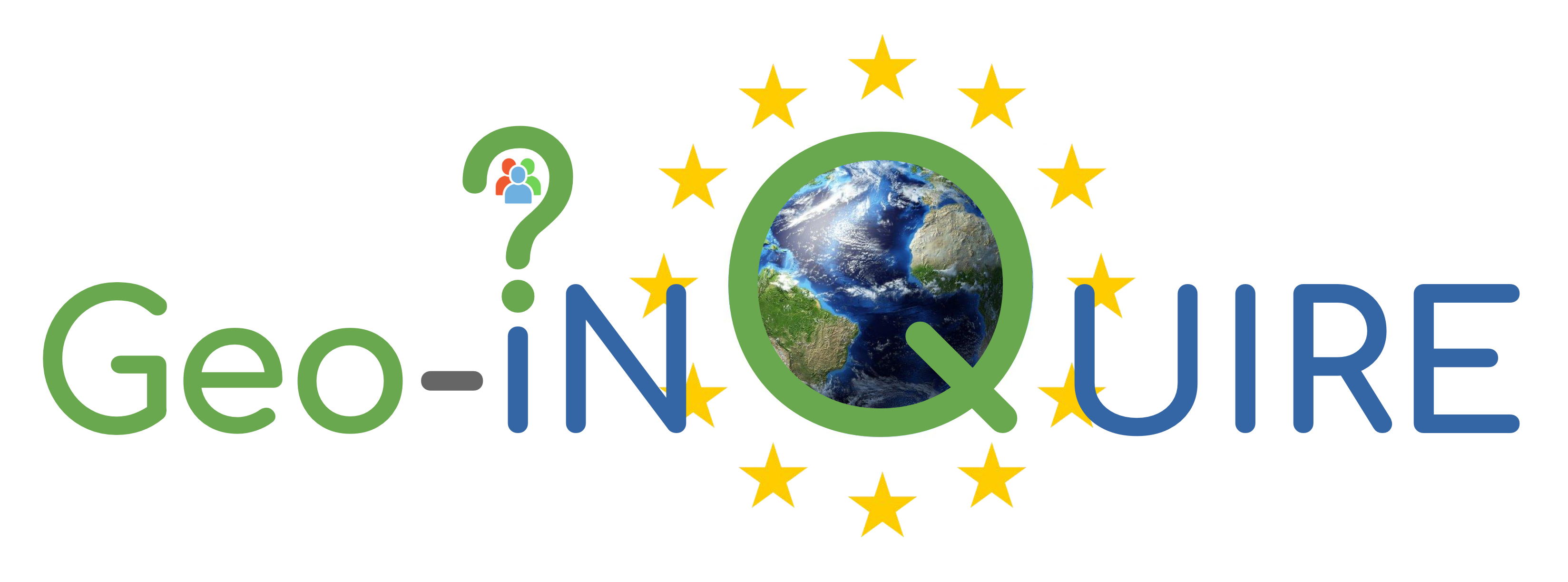Virtual Access to products enabling curiosity-driven science for georesources exploration and exploitation
Work Package 4 activities focus on the provision of access to data and transnational access to facilities through the following infrastructures: EPOS GIM, EPOS AH, and ECCSEL. The main objective of this work package is to increase the coverage, the use, and number of users of georesource data and facilities by improving access to data services based on European FAIR research infrastructures and supporting curiosity-driven georesource researchers. The content of Work Package 4 is a key element for accessing data products, services, integrated data access, and transnational access with respect to subsurface characterisation. The geoscientific focus will be on geological information and modelling (GIM), anthropogenic hazards (AH), as well as CO2 capture, use and storage (CCUS)
EPOS Geological Information and Modelling
Host institution:
Bureau de Recherches Géologiques et Minières (BRGM), France
URLs:
- EPOS-GIM: https://www.ics-c.epos-eu.org/
- View service direct access: https://data.geoscience.earth/api/wmsBorehole
- Download service direct access: https://data.geoscience.earth/api/wfsBorehole
Description:
BRGM hosts both the EPOS-GIM centralised borehole service and the French borehole data service as being one of the national nodes of EPOS-GIM. The centralised service results from the harvesting of onshore and offshore borehole data.
Presently, they include national data exposed by a group of seven European Geological Surveys, as well as a regional set of boreholes in Germany and drillings from the International Continental Scientific Drilling and International Ocean Discovery Programs (ICDP/IODP).
At the moment, 2.3 million boreholes are proposed with general data publicly accessible including: depth, drilling method, availability of borehole logs, and link to monitoring equipment.
Target community/users:
Public administration, industry, land use planners, academic/research, citizens, other virtual data infrastructures
Estimated users/year:
100 to 1.000
Community Standards:
The data follows the community standards: EPOS-GeoSciML-Lite, an extension of OGC GeoSciML
Hosting Institution
Istituto Superiore per la Protezione e la Ricerca Ambientale (ISPRA), Italy
URL:
Description:
This virtual access service consists of harmonised stratigraphic, lithological, structural and chronostratigraphic data derived from the logs of approximately 1,000 deep boreholes for oil exploration conducted in Italy onshore and offshore, free of industrial concessions.
A first level of virtual access to the borehole data is provided by the Geological Survey of Italy web map portal and on the INSPIRE geoportal.
After conversion using GeoSciML-Lite, the data is exposed for harvesting by the TCS GIM European Borehole Index made accessible on the EPOS Data Portal.
Target community/users:
Researcher/technician, scientists, data management users.
Estimated users/year:
50 to 250
Community Standards:
GeoSciML-Lite
Hosting Institution:
Consejo Superior de Investigaciones Científicas (CSIC), Spain
URL:
Description:
CSIC (IGME-Geological Survey of Spain) holds a national core repository managing the descriptive data of more than 12,000 boreholes. Drilled mainly onshore, they come from oil industry, mining, hydrogeological and geological exploration.
The virtual access service is presently not operational. When available, it will expose borehole records (view and download) as main descriptive data and metadata as depth, availability of logs/samples, location, basic drilling description, research subject.
Target community/users:
Academia, public and private research institutes, industry and governmental/ non-governmental organisations, citizens and other virtual infrastructures.
Estimated users/year:
100 to 1.000
Community Standards:
GeoSciML-Lite when operational
EPOS Anthopogenic Hazards
Hosting Institution:
Centre National de la Recherche Scientifique (CNRS), France
URL:
Description:
CNRS eNode for TCS-AH platform provides virtual access to deep geothermal data on the EPISODES Platform (TCS-AH). Located in Strasbourg, France.
It provides metadata to the Episodes platform, and data in the specific format required by the platform.
Target community/users:
Academia, public and private research institutes, industry and governmental/ non-governmental organisations, citizens.
Estimated users/year:
Less than 100
Community Standards:
mseed, station XML, quakeML
Hosting Institution:
Instytut Geofizyki Polskiej Akademii Nauk (IGF PAS), Poland
URL:
Description:
IGF PAS eNode for TCS-AH platform provides virtual access to data on the EPISODES Platform (TCS-AH). Geographically Located in Poland, Warsaw (backup in Krakow, Poland). A bespoke software, CIBIS, is installed on the eNode, that manages data: seismic, industrial, geophysical, and geological along with the appropriate metadata.
Target community/users:
The target community for the eNode itself are admins and data management users. There are no unique users as access is denied for anonymous logins and users can be only assigned by admins.
Estimated users/year:
Less than 100
Community Standards:
mseed, station XML, quakeML
Hosting Institution:
Helmholtz Zentrum Potsdam Deutsches GeoForschungsZentrum (GFZ), Germany
URL:
- Not yet available. Expected by September 2024.
Description:
GFZ EPOS AH federated eNode for the EPISODES platform created and maintained by the TCS-AH will provide access to new datasets, and serves as a back-end for data and metadata administration at GFZ Potsdam.
Target community/users:
Data and metadata administrators.
Estimated users/year:
100 to 1.000
Community Standards:
miniseed, station XML, quakeML
Hosting Institution:
Akademii Górniczo-Hutniczej im. Stanisława Staszica w Krakowie (AGH/AGH-UST), Poland
URL:
Description:
EPOS AH centralised and distributed services are constituted by the EPISODES Platform, which integrates the research infrastructure of EPOS TCS AH. The Platform provides access to Episodes - complex datasets, Applications - software solutions providing means for advanced data analysis and visualisation, Workspace - user’s private space for storing data and running applications, and extensive Document Repository.
Target community/users:
Scientists, industry, general public, education
Estimated users/year:
100 to 1.000
Community Standards:
mseed, station XML, quakeML
